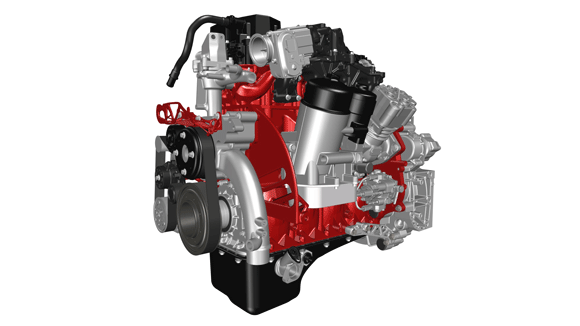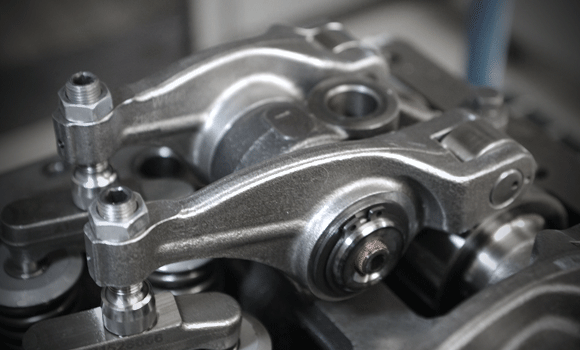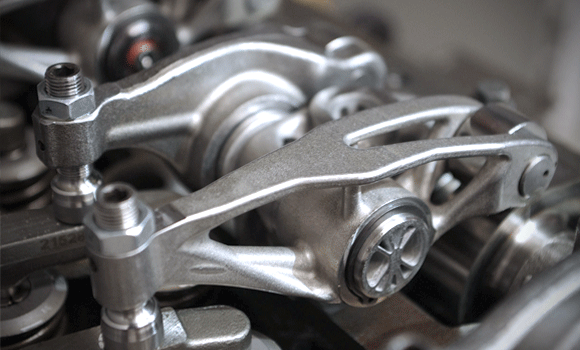Renault Trucks: Metal Additive Manufacturing could reduce engine weight by 25%
January 13, 2017

A team of Renault Trucks engineers and designers is looking to metal Additive Manufacturing to boost the performance of its engines. The Renault Trucks Lyon Powertrain Engineering department has focused on using the technology as a future engine manufacturing process, resulting in a prototype DTI 5 4- cylinder Euro-6 step C engine being designed exclusively using AM.
Renault has reported that rocker arms and camshaft bearing caps were manufactured by metal AM and successfully bench-tested for 600 hours inside a Euro-6 engine.

The original rocker arm in a Renault Trucks Euro 6 DTI5 engine

The re-designed metal AM version of the rocker arm is shown during a bench test inside a Euro 6 engine
“The aim of this project is to demonstrate the positive impact of metal Additive Manufacturing on the size and weight of an engine. This process has enabled us to reduce the weight of a 4-cylinder engine by 120 kg or 25%,” stated Damien Lemasson, project manager at Renault Trucks. “The tests we have carried out prove the durability of engine components made using 3D printing. It’s not just cosmetic.”
Metal Additive Manufacturing is opening up new opportunities for engine manufacturers. The process allows engineers to optimise the size of parts, reducing the number of assembly operations and therefore the number of components in an engine. In the short-term, this manufacturing procedure can be used for highly specific applications or small runs.
“Additive Manufacturing releases us from constraints and unlocks the creativity of engineers,” added Lemasson. “This procedure is a source of disruptive technology for the engines of tomorrow, which will be lighter and more functional, thereby offering optimal performance.”
The number of components in the DTI 5 engine has been reduced by 25%, making a total of 200 fewer parts. Following on from these successful initial tests, engineers at Renault Trucks will be continuing their work on this manufacturing process to further increase the performance and functionality of truck components
















